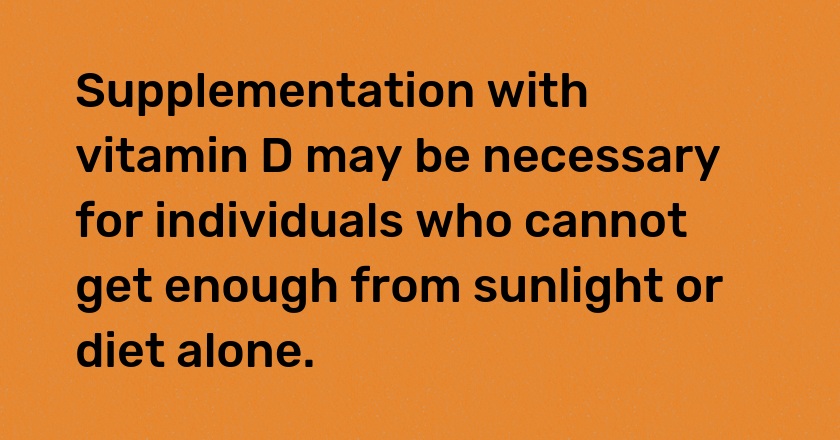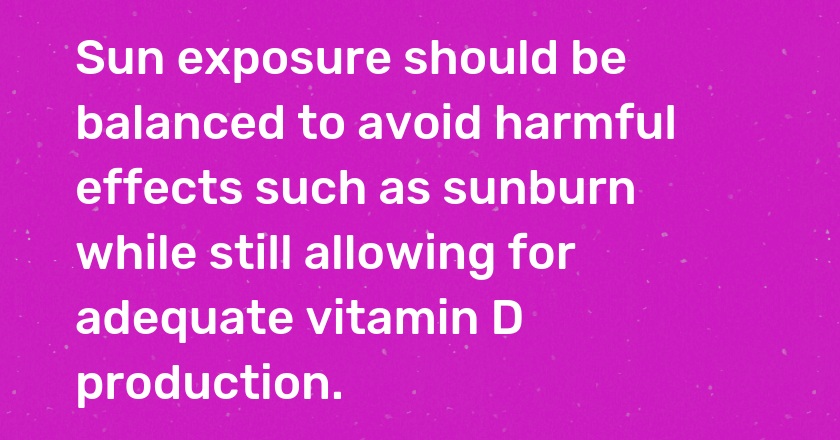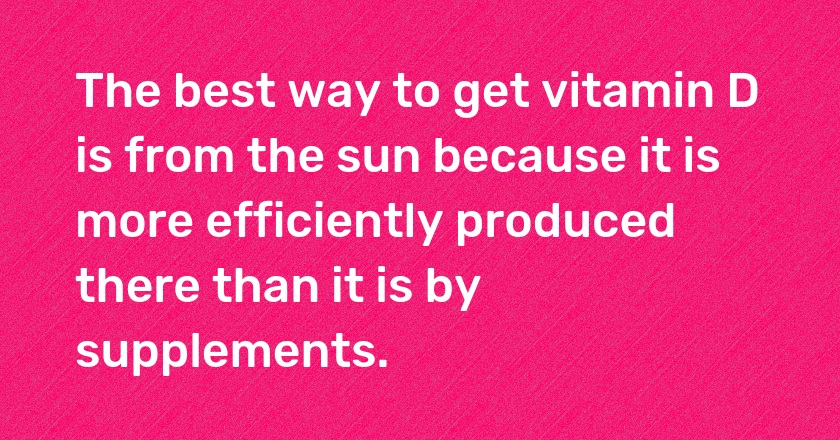Sunlight is the best source of vitamin D, but you can also get it through supplements and certain foods.
Getting enough vitamin D is important for overall health, as it supports various bodily functions beyond just bone health.
Vitamin D deficiency is a silent epidemic of the modern world.
Spending time outdoors in the sunlight is one of the simplest and most effective ways to boost your vitamin D levels.

Supplementation with vitamin D may be necessary for individuals who cannot get enough from sunlight or diet alone.
Vitamin D is crucial for the absorption and metabolism of calcium and phosphorous, which are essential for strong bones and teeth.

Sun exposure should be balanced to avoid harmful effects such as sunburn while still allowing for adequate vitamin D production.
Vitamin D deficiency is more prevalent among certain population groups, including older adults, people with darker skin, and those who are obese.
Vitamin D deficiency has been linked to an increased risk of various chronic diseases, including cardiovascular disease and certain cancers.
Vitamin D is the 'sunlight' vitamin, and in most people, it is made in the skin when sunlight hits it.
Vitamin D is important for maintaining a healthy immune system, and it may have some role in cancer prevention as well.
Vitamin D plays a critical role in bone health by regulating calcium and phosphorus levels in the body.
Vitamin D is a hormone that we get from the sun, and it helps regulate the immune system.

In regions with limited sunlight, such as northern latitudes during winter months, vitamin D deficiency is more common.
Vitamin D is sometimes referred to as the 'sunshine vitamin' because of its synthesis in the skin in response to sunlight exposure.
Even if you're out in the sun, you might not be making enough vitamin D if you're wearing sunscreen or if you have darker skin.
Without adequate vitamin D, bones can become thin, brittle, or misshapen.

The best way to get vitamin D is from the sun because it is more efficiently produced there than it is by supplements.
Vitamin D is like a hormone, and we haven't realized how important it is to many body functions and how much we need it.
Adequate vitamin D levels have been associated with improved mood and mental well-being.